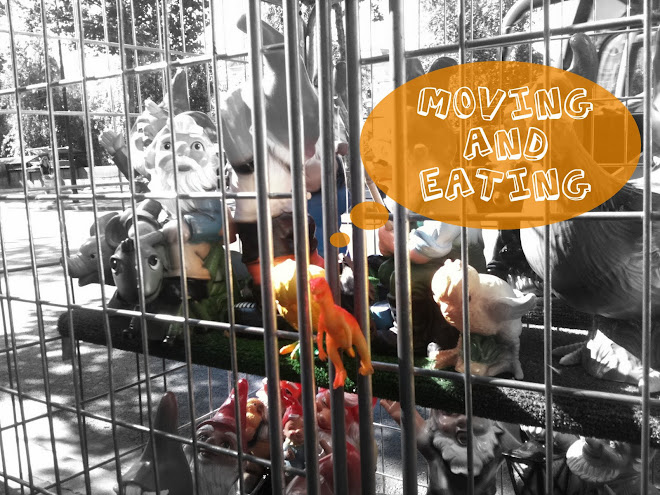
Barbara Kingsolver's books have followed and supported me through some very strange twists and turns in life. Three in particular I've come to associate with important crossroads. First is The Bean Trees. My grandmother sent it to me when I was a teenager and I devoured the story of a gal from Kentucky who decides to drive across the country with no particular destination and ends up making a life where her car brakes down in Tuscon. One thing that stuck with me was that a girl from the middle of nowhere would just get up and leave with no place in particular to land and with no one to greet her on the other end of the journey...ballsy and inspiring for a young lady with an active imagination. A few years later I did the same thing, driving from Ohio and ending in San Luis Obispo California, sight unseen, not knowing a single soul. I lived there off and on for eight years and that move was the single scariest and best thing that I've done yet. Also inspiring was Kingsolver's description of a spectacular plant, the night blooming cereus. I've always remembered the beautiful name that just rolls of the tongue and conjures up all this mystery and beauty when I roll it around in my mind. It's bright white bloom opens only one night per year and then closes again at dawn for another 364 days of obscurity. I'd never seen one until last week when my host brought one home for me. It was closed tight when he gave it to me, so I set it out in the moonlight and waited. It slowly opened into a gigantic bloom, bigger than both my fists, and gave off a musky scent like a lily. I could make literary allusions to the dark night of my soul, the angelic white beauty that perfumed my room that night, but I'll spare you from the final throws of my aborted literature degree. Let's just say that it was rare and beautiful and magical and something that I'd always wanted to see for myself.
A little while later, there was the Poisonwood Bible. It's an epic book, following a family of missionaries who travel to the Congo in the 1960's with disastrous consequences. It laid the seeds for my own break from my religious upbringing, something I'm still negotiating. Barbara tells the story five times from the viewpoint of five different women in the family and it's brilliant. That retelling is what made the book so important for me. I'd been brought up very religiously in the conservative Mid-West with one constricting perspective of how to see the world. No nuance, no room for interpretation and no questions. Seeing the problems that religious rigidity had causes for these fictional missionaries cracked open my own heart just a little and let in a bit of acceptance for my own questioning. Just seeing more than one side to story was a revelation and my soul began to wander outside the church I'd been raised.
A little while later, there was the Poisonwood Bible. It's an epic book, following a family of missionaries who travel to the Congo in the 1960's with disastrous consequences. It laid the seeds for my own break from my religious upbringing, something I'm still negotiating. Barbara tells the story five times from the viewpoint of five different women in the family and it's brilliant. That retelling is what made the book so important for me. I'd been brought up very religiously in the conservative Mid-West with one constricting perspective of how to see the world. No nuance, no room for interpretation and no questions. Seeing the problems that religious rigidity had causes for these fictional missionaries cracked open my own heart just a little and let in a bit of acceptance for my own questioning. Just seeing more than one side to story was a revelation and my soul began to wander outside the church I'd been raised.

Barbara's most recent work is equally apropos to my current life. I found a copy of Animal, Vegetable, Miracle at the little Kapa'au Public Library a couple of weeks ago and devoured it in about two days. In this homey memoir, Barbara recounts the highlights of a year of her family's life where they pledged, and successfully ate, only local food, primarily through growing and raising it in their backyard. Oh, Barbara, how do you always know what I need to read? Her latest book is a perfect complement to my little organic gardening adventure, and, as a bonus, has tons of great recipes for enjoying the harvest of your kitchen garden. Since we have an abundance of goat's milk here at the farm in Hawaii, I decided to try her recipe for mozzarella, which promised to be both quick and easy. I was skeptical, but in the end was won over when I had successfully made my first batch of super tasty homemade gooey deliciousness in less than 30 minutes. It's so easy, and here's all you'll need:
So let's recap all the things that Barbara has guided me through this far:
- A big stainless steel pot
- A thermometer
- Liquid rennet
- Citric Acid
- A gallon of unpasturized milk
So let's recap all the things that Barbara has guided me through this far:
- Moving across the country
- Learning to think for myself
- Succor on my quest to mend a broken heart through gardening and eating

Good post. I loved Animal Vegetable Miracle too. What a perfect time for you to read it.
ReplyDelete